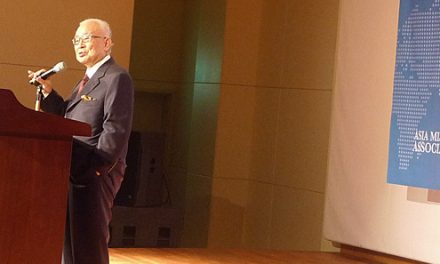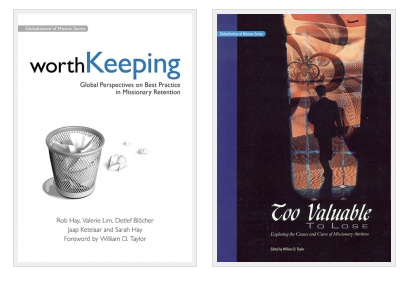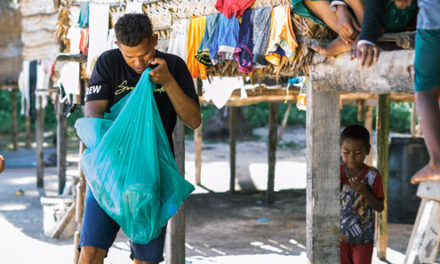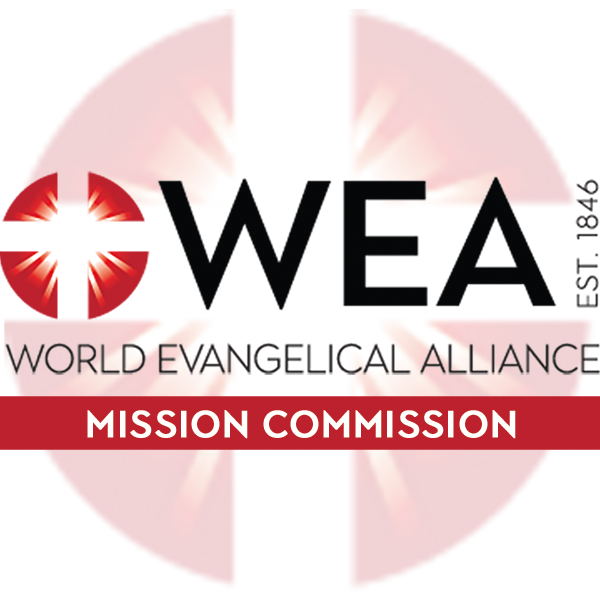REIMAGINING MISSIONS: EVERYONE TO EVERYWHERE
[35 Minute Read]
Dear fellow participants in God’s mission,
Grace and peace to you in the name of the Lord Jesus Christ.
Immediately following the Fourth Lausanne Congress in Incheon, South Korea (22-28 September, 2024), a group of around 100 Majority World Christian leaders with a passion for missions gathered in Busan, South Korea (29 September – 2 October). The forum was hosted by the new COALA network of Majority World missions leaders. COALA’s acronym stands for “Christ Over Asia, (Africa, Arab World) and Latin America”, with the first A covering increasing territory as more regions join the conversation (hence the parenthesis).
The central focus of the gathering was to further explore the meaning of “Polycentric Missions”, which was promoted in the lead-up to Lausanne 4, in the State of the Great Commission report, and celebrated in the diversity of cultures participating and working behind the scenes at the Congress.
In this essay, originally titled “An Indigenous Engagement with Polycentic Missions”, Mission Commission Executive Director Jay Mātenga reviews the Mission Commission’s historic commitment to Majority World missions perspectives, corrects some unhelpful ways “polycentrism” is being applied to missions today, emphasises the benefits of the concept for missions in local contexts, and suggests a better term to describe missions from everyone to everywhere with a stronger biblical emphasis and the addition of a 5th ‘self-‘ to the classic 3- and more recent 4-self model of indigenous church development.
Tēnā koutou katoa — that is a formal greeting in te reo Māori, which literally means I see you; I acknowledge you all. I am Jay Mātenga, Executive Director of the World Evangelical Alliance Mission Commission. I’m a contextual theologian of indigenous Māori heritage.
The second gathering of the emerging COALA movement, in Bangkok Thailand, 1-3 May this year, published a statement of “Recommendations for Mission Practice for the Majority World”. In that statement paragraph three of the preamble reads, “many in the global church today recognize that we are now living in a new era of polycentric missions, wherein missions today is from everywhere to everywhere.”
To paraphrase, the statement goes on to make six recomendations:
- The primacy of the Holy Spirit.
- The importance of the local and multi-church connections.
- The need for missionary humility and service to the local church.
- Contextual and cultural sensitivity.
- Promoting growth in the depth and breadth of indigenised Christianity.
- And, careful use of outside resources for mutual benefit.
In the concluding call for unity and partnership, the COALA 2 statement reaffirms that our “era of polycentric missions” requires the development of all kinds of partnerships to bring resources together “into a powerful synergistic whole for world mission”. Bravo! Those of you who helped craft those recommendations deserve to be applauded. Well done.
Positioning The Majority World
I am not sure who Lausanne 4 thought their target audience was, calling as they did for a commitment to collaboration on their terms, but most of us in this forum have already been collaborating for decades. It is in our DNA. Here and now, the COALA movement just sits as the most recent iteration of Majority World missions collaborative initiatives. Did you know that immediately following Lausanne 1 in 1974, the World Evangelical Alliance established the Mission Commission as we know it today? A missions vision has been central to the World Evangelical Alliance since it was originally conceived in 1846, but in ‘74 the commission was formed with more autonomy and, under Dr Clyde Taylor’s WEA leadership, the first Executive Director of the Mission Commission was appointed in 1975.
WEAMC: A bridge-building body between the new Third World Missions and the traditional Western Missions so that help can travel in both directions in the furtherance of the Lord’s work worldwide.
She was Dr Chun Chae Ok from right here in South Korea. Dr Ok had a distinguished service as a pioneer missionary to Pakistan for thirteen years. With her appointment, a new purpose was added to the Mission Commission’s remit. That was, to become a “bridge-building body between the new Third World Missions and the traditional Western Missions so that help can travel in both directions in the furtherance of the Lord’s work worldwide”. 1975. Already the emerging Majority World missions force was apparent and a commitment to collaboration was established. What we heard at Lausanne 4 last week was nothing new.
1988 was a significant turning point in cross-cultural missions with the genesis of the Third World Missions Association. It officially formed in 1989, chaired by Dr David Cho with Jonathan Santos and Reuben Ezemadu (MANI) alongside. This eventually became the World Link Missions Association focused on training missionaries from new sending nations. While it may not be intentional, I can detect the heritage of TWMA and World Link in the COALA vision and values.
But even as the Third World Missions Association diminished, so a new Majority World missions movement emerged. In 2016 the Majority World Christian Leaders Conversation formed following a meeting of eleven missions leader practitioners. This quickly developed into regional chapters, but momentum was interrupted by the global pandemic. Peter Tarantal of Operation Mobilisation was central to the development of this movement and at the time was Chairman of the Mission Commission, who appointed me as Executive Director in 2020.
Some here may know this history much better than I. But I say all that to put COALA into historical perspective. You here are the latest in an honourable history of Majority World missions leaders seeking to promote fresh participation in God’s purposes throughout the world and the WEA Mission Commission continues with you. We continue as a bridge and from that perspective let me encourage you—in all that the COALA movement seeks to promote, let us take care not to diminish the wonderful contribution our Western brothers and sisters have and will continue to bring into the mix—mutuality demands it.
Some of us here are representative of a new generation that is facing a radically different global context and a diminishing interest in traditional long-term foreign or cross-cultural missions. Not just from the West but also the Majority World. If the change is not yet apparent in your context, it is coming. We can deny it all we want, we can pour resources into trying to change it. We can recommit and double down (and develop digital tools to try and stem the tide). But, as a missions mobiliser at heart, who literally (co)wrote the book on the subject of mobilisation, called “Mission in Motion”, it pains me to recognise that the traditional missions model is decreasingly fit for purpose in our global context. The old missions paradigms are fading away. The Spirit of God is doing a new thing. But, as Mission Commission Deputy Leader Ken Katayama, President of Crossover Global, has paraphrased Isaiah 43:19, “do we DARE perceive it?”
Polycentric Defined
Even though it’s the topic I have been asked to speak on, I have to confess that I do not believe the “new thing” God is doing is polycentric. Missions’ recent obsession with polycentric theory is perplexing to me. It’s an overbaked term used in an underbaked way. The way it is being described bears very little resemblance to the meaning of polycentricity in social, political, and economic science and other arenas. I know I’m stepping on toes here. Obviously, you are free to use the term if you want, and define it anyway you wish, and I think the COALA 2 statement is as good an application as I’ve seen, but we don’t need to speak of polycentrism to describe the dispersed and decentralised nature of World Christianity and missions. I prefer we talk in terms of mutuality in missions—the sharing of unique expressions of God’s grace deposited in our diverse cultural backgrounds, from everyone to everywhere.
No, the new thing God is doing isn’t polycentrism. It is the exact thing the Spirit has been doing since Pentecost nineteen hundred and ninety one years ago but in new contexts: incarnating and propagating the gospel in tribe after tribe, people after people, language after language, nation after nation. And as human beings hear about and turn to follow Jesus, to pledge allegiance to Him, we begin to participate as the people of God in the purposes of God to co-create New Creation for the glory of God.
In its technical sense, polycentric, polycentricism, or polycentricity has very little to do with “from everywhere/one to everywhere”. When it comes to the universal Church, it is probably best to consider it as PLURIcentric—the single body of Christ spreading throughout the world. One authority, in many places with different expressions.
As you will hear from other speakers at this forum, polycentric means many (poly) authorities (centres). It is all about where and how power and influence emerge within a defined context. It is a term developed for political, social, and economic sciences with quite a specific meaning. Polycentrism asks, where are the centres of power and how can we best align those authorities to maximise the most benefit for all within a common system. Seen universally, the global Church has one centre—that is Christ. But it has many expressions, it is plural, pluricentric.
Set our sights on local contexts, however, and polycentrism emerges. We’ll come to that in a minute.
English semantics aside, I do not believe that we are anywhere near a truly polycentric missions era. Not yet. But it is emerging. We are not yet in it because the missionary initiatives born in the Majority World were and, in most ways still are, following Western missiology based on what I call a Eurocentric theological consensus—the theologies of the European diaspora, which obviously and especially includes the USA. There are varying degrees of cultural difference in the way missionaries and mission societies from the Majority World conduct missions, but in mainstream missions we still have Eurocentric diaspora influenced missions done with minor cultural nuances… and a lot of intercultural frustration. Global Evangelicalism is much more diverse than the industrial missionary movement typically models.
Take it or leave it, but I don’t think polycentrism is ultimately a helpful metaphor for discussing global missions. We can draw far better images from Scripture to capture what the Spirit of God is doing in the world today and how we can all participate in it from everywhere to everywhere. Using secular academic models constrains us too much to an overly complicated Industrial way of thinking. We can find better terminology as Majority World missiologists and missions practitioners, let’s not settle for coopting highly technical phrasing. From my perspective, I believe that “mutuality” better expresses a “from everyone to everywhere” missiology. It is about koinonia, sharing, reciprocity, co-labouring, synergism, equitability. So: mutuality.
Prioritising the Centre
If we are to talk of polycentrism in the true meaning of the concept, it can come in helpful when it shines a light on the importance of the local, the indigenisation of the gospel within a specific context. And so, we come to my indigenous engagement with polycentrism.
I have come to recognise that wherever the gospel is planted, there we need to acknowledge local authority for protecting, nurturing, and ultimately propagating it. Mature local Christian leaders need to be respected as guardians of the gospel for their people.
Local self-determination and a 5-self church: self-governing, self-supporting, self-propagating, self-theologising, and self-giving
I am talking about local self-determination: self-governing, self-supporting, self-propagating, and self-theologising, but I would add self-giving, to describe when an indigenous church participates as part of the global church—a 5-self church, because no part of the body of Christ exists in isolation and we’re all to contribute to spreading the gospel. This is mutuality in World Christianity. It is in the humble, self-sacrificial, self-giving that we see the people of God participating in the purposes of God toward co-creating New Creation for the glory of God.
Self-sacrifice in itself is not sufficient. There needs to be an object to which our sacrifice is directed. God, obviously, in the first instance, but that can be tantamount to the joke where the person throws money into the air and claims God can keep what He wants. God has designed New Creation to be a society that blesses others beyond ourselves. We are blessed to be a blessing. This is the way I prefer to speak of our commission as Jesus’ witnesses. And, if the object of our blessing crosses culturo-religious boundaries, you can call it cross-cultural missions if you prefer. But whether local or global, it is the same thing.
If we dare perceive the “new thing” that God is doing right now, I would argue that it is the gradual but inevitable collapse of the hegemonic authority of Global North Christianity… and consequently its missions influence. The tide has well and truly turned. We all know that the demographic centre of Christianity has shifted South.
World Christianity demographer Dr Todd Johnson mentioned to me at Lausanne 4 that he, Dr Gina Zurlo, and the team at the Centre for the Study of Global Christianity have extrapolated data beyond 2050, to 2075 for the very first time. They were surprised to find that the evidence strongly indicates that the global church by 2075 will be 83% indigenous. Not Majority World. Indigenous. In my understanding there is a difference and the difference is, where a church gets its theology from.
Even now I perceive Global North Christianity is losing the moral authority to dictate what theologies emerge or disappear, how church should be conducted, or how we participate in God’s purposes in the world. But sadly, still now certain Global North theological biases are splitting usunder Majority World churches in Africa, Asia, Latin America and Oceania with transplanted dogma.
Obviously historic and universal non-negotiables of the faith remain. But the meaning of the core tenets of the gospel and the theologies that enhance our relationship with and understanding of God, must emerge from within, from the very dirt of a context, by people are formed from that dirt. Not imposed from outside. That takes time but the newer churches of the Majority World are maturing into it.
While I don’t think we find true polycentrism within the global Evangelical missions movement yet, because of the residual dominance of Global North missiology, we do find it within local expressions of World Christianity, and it has been there all along. Scholars and demographers of World Christian history have been arguing this for a while. In this regard, we should note that the lasting change-makers of previous global conferences were not missionaries but local believers carrying into the world the authority, and the theology, that emerged from their centres. They were indigenous church leaders like Bishop Azariah at Edinburgh 1910, and Majority World theologians, like René Padilla at Lausanne 1974. Their voices are still speaking to us today.
Polycentrism is not about the ‘where from’ but the ‘who’s there’.
Polycentrism is not about the ‘where from’ but the ‘who’s there’. It’s about the indigenous authority of the recipients of the gospel. It is about the local not the global. If we were to shift our lens to the local, to the insider, to the indigenous to a context, our strategies would shift radically because we will be seeing and responding from a different vantage point. As outsiders, we need to learn to see with greater empathy. To seek to understand their world and to repent of our superiorities and prejudices—our ethnocentricities. By “we”, I am including diaspora and migrant Christians as well—one of the most ancient pathways for cross-cultural witness.
We need to learn what it means to honour the local and let the locals lead. That’s not to say we outsiders, whether Western or Majority World or migrants from either, don’t get involved or that we withhold our resources, but that we engage humbly and generously. We should acknowledge the authority of the local, the power that God has given them as a people to shape their life and wellbeing, whether they know God or not.
Yes, even if they don’t follow Jesus, they still have God-given authority. If we outsiders try to take that away and impose on them our culturally formed ideas of life and wellbeing, we diminish them. We subjugate them. We colonise them. We only end up suppressing the grace of God that lies latent or unrecognised within their cultures awaiting the gospel to awaken New Creation in their midst.
Polycentric Response
What should our response be then? Firstly, we need to acknowledge that globalisation has impacted local contexts. This is an unavoidable fact. The local and global interact in almost every part of the world. But on whose terms? Usually the powerful, the ones with the most means. Money dictates methods. Sadly, this is also true with cross-cultural missions.
Multicultural missions groups represent an intersection of difference and polycentrism can help insofar as it demands a certain equality of participation for mutual benefit within culturally mixed systems of missions and local churches. From a biblical perspective, in keeping with the Apostle Paul’s theology, I believe this kind of Christ-following collaboration for Kingdom of God purposes can be seen as “co-creating New Creation”. Co-creating in New Testament Greek is synergéō, synergy, often translated as co-labouring or co-working. But we don’t need polycentric theories to get us there. Are we not simply talking about intercultural Christian fellowship— koinonia? Is mutuality not central to the power of the gospel, where the work of Jesus eradicates barriers of hostility between us and equalises power, so we can transform one another as we co-create together (as Romans 12 describes if you read vs 1 & 2 in the chapter’s context)?
For the 2023 Mission Commission Global Consultation, GC23, MC chairperson Dr Ruth W. and I set the tone in the very first plenary session. I said that in a transcultural gathering like GC23, no-one should feel comfortable. If we feel comfortable then we are probably participating from a position of power not from the position of learner. In a highly diverse context, even such as COALA, we should always be feeling discomfort as we try to understand and learn from our brothers and sisters from other backgrounds.
Ruth went on to say it’s like we’re all bringing our unique cultural ingredients into the kitchen, to cook up some grand fusion of a banquet. Some of delicacies from other cultures might not be to our taste, but they all add rich flavour to the overall recipe. Alone, some ingredients may not be to our liking. But added to the mix, oh! What a delicious feast!
Unlike GC16 in Panama, which featured polycentrism as the theme, we did not mention it at all at GC23—by my design. Instead, the theme “local impact: ripples and waves” aimed to fire up imagination of what it might look like to be more balanced in our appreciation of one another and more respectful of each other’s centre of authority. We also sought to model making room for others to shine in their giftedness, from their positions of authority. To nurture mutuality that ripples out and brings about waves of change—it has been confirmed to me that COALA is a direct expression of the impact of GC23.
Apart from the introduction, I did not speak again at GC23 but served in various ways. You would be working hard to find me in the GC23 group photo. That’s not shyness. That’s deliberate decentring. Leadership from below. That’s not to elicit praise for me, it is just one small example of how we should be honouring and making room for others, maturing ourselves in the process.
Feeling mutually uncomfortable is all well and good in transcultural contexts where we convene international meetings to promote intercultural exchange like this COALA forum. But, when it comes to local settings, the indigenous should feel comfortable. It is their context. It is their home, and we are the guests. It is only appropriate that we should defer to their authority. If the relationship is strong, we can expect to be invited to speak into situations. That is what being part of the body of Christ is about, but we need to leave it for them to decide what to do with our input, if anything.
I should clarify here that I am not speaking of any kind of apartheid. I do not believe that God created nations so that we remain ethnically separated. That is an aberration of the truth and a perversion of the gospel. We must be authentic to who we are but willing to lay it aside in love and service of one another. It is self-determination with self-giving in community towards mutuality in Christ.
Whether we talk about it as a polycentric era or, as I would prefer, an era of “World Christian mutuality”, the most effective way for us to strengthen participation in God’s global purposes is to live according to the kenotic attitude of Christ, which Paul explains most clearly in Philippians 2:5-11.
Conclusion
Do we dare look in the mirror and acknowledge our own ethnocentricities, our biases and prejudices, and repent? Let us beware of repeating the same colonial mistakes with a different skin tone.
God is doing a new thing. Do we dare perceive it? Do we dare honour the local and hold back from imposing our cultural Christianity upon them? Do we dare say to the Western missions paradigm, “thank you for all you have done, but let us reset the drawing board, lay aside your assumptions, and find new ways forward from here, together, with high mutuality”? Do we dare work in NEW ways to co-create New Creation in specific contexts, inspired by many voices from across the global church, yet led by local voices?
Regardless of our backgrounds, do we dare look in the mirror and acknowledge our own ethnocentricities, our biases and prejudices, and repent? Let us beware of repeating the same colonial mistakes with a different skin tone.
Let us dare to commit to upholding the COALA 2 recommendations:
- The primacy of the Holy Spirit.
- The importance of the local and multi-church connections.
- The need for missionary humility and service to the local church.
- Contextual and cultural sensitivity.
- Promoting growth in the depth and breadth of indigenised Christianity.
- And, careful use of outside resources for mutual benefit.
Whether or not we sign and witness a piece of paper, it is our commitment to mutual relationships as the whole Church taking the whole gospel into the whole world, living our faith out loud, that will change this world for Jesus.
Let us persevere in that mutuality, co-creating New Creation, until Jesus returns. Amen.
References and sources used for this essay:
- Baron, Eugene & Botha, Nico A. 2020. Majority World Perspectives on Christian Mission. Auckland Park, Johannesburg: University of Johannesburg Press.
- COALA2. 2024. Recommendations for Mission Practice for the Majority World. Unpublished statement signed by 31 participants. Reported here: https://missionews.co.kr/news/584922 (Accessed 1 September 2024).
- Ekström, Bertil. 2019. From Seoul to Kuala Lumpur: The Missions Journey of the MC. Unpublished paper, World Evangelical Alliance Mission Commission.
- Ezemadu, Reuben. 2020. Dr. David J. Cho, His Legacy In The Global South Mission Movement, And Fraternity With The Movement For African National Initiatives (MANI). Asia Missions Association online. https://www.asiamissions.net/dr-david-j-cho-his-legacy-in-the-global-south-missionmovement-and-fraternity-with-the-movement-for-african-national-initiatives-mani/ (Accessed 29 August 2024).
- Hill, Graham Joseph. 2023. Polycentric Mission: From Everyone to Everywhere. https://grahamjosephhill.com/polycentric-mission/ (Accessed 17 April, 2024).
- Howard, David M. 1986. The Dream That Would Not Die. Exeter: Paternoster Press.
- Matenga, J & Gold, M. 2016. Mission in Motion: Speaking Frankly of Mobilization. Pasadena, CA: William Carey Library.
- Yeh, Allen. 2016. Polycentric Missiology: 21st-Century Mission from Everyone to Everywhere. Downers Grove, IL: IVP Academic.
Pray
- For wisdom for all missions and ministry leaders during this time of great change. It is a troubling thing to have to navigate old organisations through new contexts, daring to perceive how the Spirit of God is moving beyond our traditional spheres of understanding and influence.
- For courage for those who have a strong and confirmed call to minister across cultures. Self-denial is no more difficult than when one is submitting to the direction of those whose cosmovision (understanding of the world) is very different from one’s own. Yet, it is also the most potent for the gospel in such contexts.
- For the remaining people, tribes, languages, and nations, in physical and digital contexts, who still do not have a gospel witness or gospel resources to help them mature if they do choose to follow Jesus. Let there be no doubt, much remains to be done to ensure that the inhabitants of our cosmos have an opportunity to hear the good news. We are not calling for a moratorium on missions!
- For generous hearts, willing to enter into relationships of true mutuality within and across nations. We cannot and must not minister in silos resisting the input of others with differing perspectives. Generosity begins and ends with openness, is sustained by a willingness to serve, and protected by resistance to domination. Let us hunger after the attitude of Christ in all things.







